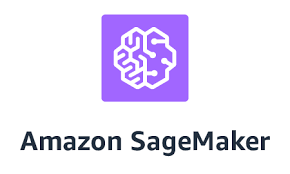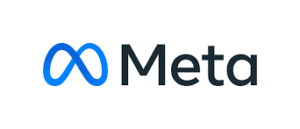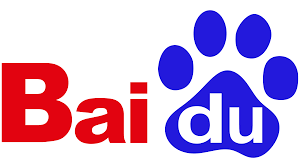AI solutions help businesses automate processes, analyze large amounts of data, and improve decision-making. These technologies range from machine learning and natural language processing to computer vision and predictive analytics. Companies across industries use AI to increase efficiency, reduce costs, and enhance customer experiences.
AI-powered solutions are applied in sectors such as finance, healthcare, retail, and logistics, supporting tasks like fraud detection, personalized recommendations, supply chain optimization, and medical diagnostics. As AI technology continues to evolve, businesses can expect smarter, more efficient tools that improve operations and drive growth.

1. AI Superior
At AI Superior, we develop advanced AI solutions that help businesses automate operations, optimize decision-making, and improve efficiency. Our team of data scientists and engineers specializes in machine learning, natural language processing, and data analytics, creating AI-driven applications that address complex business challenges.
We work with enterprises across industries, delivering customized AI models that enhance workflows, extract actionable insights, and enable intelligent automation. By integrating AI into existing systems, we help organizations increase productivity, reduce costs, and drive innovation.
Key Highlights:
- AI-driven automation and optimization solutions.
- Expertise in machine learning, natural language processing, and data analytics.
- AI applications for workflow optimization and decision support.
- Seamless AI integration into enterprise systems.
- A team of Ph.D.-level data scientists and engineers.
Services:
- AI-powered automation and process optimization.
- Custom machine learning model development.
- Data analytics and predictive modeling.
- AI integration for enterprise applications.
- AI consulting and strategic planning.
- Research and development of advanced AI capabilities.
Contact Information:
- Website: aisuperior.com
- Contact Email: [email protected]
- LinkedIn: linkedin.com/company/ai-superior
- X (formerly Twitter): x.com/aisuperior
- Address: Robert-Bosch-Str.7, 64293 Darmstadt, Germany
- Phone Number: +49 6151 3943489

2. OpenAI
OpenAI develops generative AI models like GPT-4 and DALL·E, enabling text, image, and video generation for diverse applications. The organization prioritizes alignment research to ensure ethical AI deployment, collaborating with enterprises and academia to integrate AI responsibly.
Its API provides access to customizable language models, empowering developers to build applications for content creation, analysis, and automation. OpenAI’s focus on multimodal reasoning and safety frameworks positions it as a leader in shaping AI’s societal impact.
Key Highlights:
- Generative models for text, image, and video applications.
- API-driven solutions for scalable enterprise integration.
- Emphasis on AI safety and ethical governance.
- Partnerships with academic and industry stakeholders.
- Tools for fine-tuning domain-specific models.
Services:
- LLM APIs for content generation and analysis.
- Custom model training and fine-tuning.
- AI-driven research collaboration programs.
- Developer documentation and support.
- Multimodal reasoning frameworks.
Contact Information
- Website: openai.com
- LinkedIn: linkedin.com/company/openai
- Twitter: twitter.com/openai
- Email: [email protected]

3. Microsoft Azure AI
Microsoft’s Azure AI integrates cutting-edge models like GPT-4 into cloud infrastructure, offering tools for building, training, and deploying AI systems. The platform emphasizes enterprise-grade security and interoperability, supporting frameworks like PyTorch and TensorFlow for seamless development.
Azure AI powers productivity tools such as GitHub Copilot, streamlining software development with AI-driven code suggestions. Its hybrid cloud capabilities and low-code solutions enable organizations to scale AI adoption while maintaining compliance and governance.
Key Highlights:
- Cloud-based AI training and deployment.
- Integration with open-source ML frameworks.
- Enterprise security and compliance features.
- AI-enhanced productivity tools.
- Collaboration with OpenAI for model access.
Services:
- Azure Machine Learning platform.
- Custom LLM training and fine-tuning.
- Computer vision and NLP APIs.
- AI-driven analytics and automation.
- MLOps and workflow management tools.
Contact Information
- Website: www.microsoft.com
- Address: 1 Microsoft Way, Redmond, Washington 98052, USA
- LinkedIn: linkedin.com/company/microsoft
- Twitter: x.com/microsoft
- Facebook: facebook.com/Microsoft
![]()
4. Google DeepMind
Google DeepMind pioneers AI research in healthcare and scientific discovery, with breakthroughs like AlphaFold revolutionizing protein structure prediction. The organization combines reinforcement learning and deep learning to tackle complex challenges in robotics, energy efficiency, and multimodal AI.
Through platforms like TensorFlow and Kaggle, Google democratizes access to AI tools, fostering collaboration in data science and machine learning. Its AI integration across products like Google Cloud and Workspace enhances productivity and innovation globally.
Key Highlights:
- AI research in healthcare and scientific domains.
- Open-source frameworks for ML development.
- Kaggle’s community-driven datasets and competitions.
- Integration of AI into cloud and productivity tools.
- Ethical AI governance and transparency initiatives.
Services:
- TensorFlow ecosystem for ML workflows.
- Cloud-based AI training infrastructure.
- Custom model development tools.
- Dataset hosting and collaboration platforms.
- AI ethics consulting and governance.
Contact Information:
- Website: www.deepmind.google
- Instagram: instagram.com/googledeepmind
- LinkedIn: linkedin.com/company/googledeepmind
- YouTube: youtube.com/@google_deepmind
- Address: Amphitheatre Pkwy, Mountain View, California 94043, US

5. AWS Amazon SageMaker
AWS provides scalable cloud infrastructure for AI development, with Amazon SageMaker simplifying model training and deployment. The platform supports distributed training, hyperparameter tuning, and pre-built AI services like Rekognition and Lex for rapid prototyping.
AWS’s global cloud network enables enterprises to deploy AI solutions across industries, from healthcare analytics to autonomous systems. Its tools for MLOps and data labeling ensure efficient workflows and real-time insights.
Key Highlights:
- Managed ML workflows with SageMaker.
- Pre-built AI services for vision and speech.
- Integration with AWS’s global cloud infrastructure.
- Tools for automated model deployment.
- Security and compliance solutions.
Services:
- Cloud-based AI/ML training environments.
- Computer vision and NLP APIs.
- Data annotation and synthetic data tools.
- Enterprise-grade security frameworks.
- MLOps and monitoring platforms.
Contact Information
- Website: aws.amazon.com
- LinkedIn: linkedin.com/company/amazon-web-services
- Twitter: twitter.com/awscloud
![]()
6. IBM Watsonx
IBM’s Watsonx platform streamlines enterprise AI adoption with tools for model training, validation, and governance. The platform emphasizes explainable AI and hybrid cloud deployment, addressing industry-specific challenges in healthcare, finance, and supply chain management.
IBM collaborates with global partners to ensure compliance and scalability, offering solutions like Granite LLMs for document processing and automation. Its focus on ethical AI frameworks ensures transparency and accountability in deployments.
Key Highlights:
- Enterprise-grade AI governance tools.
- Hybrid cloud deployment capabilities.
- Industry-tailored LLMs for automation.
- Collaboration with academic institutions.
- Ethical AI and bias mitigation frameworks.
Services:
- Custom LLM development and fine-tuning.
- AI model lifecycle management.
- Data preprocessing and synthetic data tools.
- Compliance and risk assessment solutions.
- AI strategy consulting.
Contact Information:
- Website: ibm.com
- LinkedIn: linkedin.com/company/ibm
- Twitter: twitter.com/ibm
- Instagram: instagram.com/ibm
- Address: 1 New Orchard Road, Armonk, New York, USA
- Phone: +1 800 426 4968

7. Meta AI Research
Meta advances AI through open-source models like Llama, which democratizes access to state-of-the-art language models. Its research spans computer vision, reinforcement learning, and metaverse integration, enhancing platforms like Facebook and Instagram with AI-driven content moderation and recommendations.
Meta supports developers with PyTorch, fostering innovation in distributed training and multimodal AI. The company’s focus on ethical AI governance ensures responsible deployment across social and virtual environments.
Key Highlights:
- Open-source AI models and tools.
- AI-driven content moderation and recommendation systems.
- PyTorch ecosystem for flexible model development.
- Research in metaverse integration and AR/VR.
- Partnerships with academic institutions.
Services:
- Pretrained models for NLP and computer vision.
- Tools for building AI-driven social features.
- Developer frameworks for distributed training.
- Dataset sharing platforms.
- AI ethics and policy initiatives.
Contact Information
- Website: ai.meta.com
- Facebook: facebook.com/aiatmeta
- Twitter: twitter.com/aiatmeta
- LinkedIn: linkedin.com/showcase/aiatmeta
- YouTube: youtube.com/@aiatmeta
![]()
8. Anthropic
Anthropic focuses on building AI systems with robust safety frameworks, exemplified by its Claude models. The company prioritizes alignment research to ensure AI behavior aligns with human values, offering tools for auditing and interpreting model outputs.
Claude’s applications span enterprise tasks like legal analysis and technical documentation, emphasizing transparency and reduced bias. Anthropic collaborates with policymakers to shape ethical AI governance and deployment standards.
Key Highlights:
- AI safety and alignment research.
- Enterprise-focused LLMs for complex tasks.
- Tools for model transparency and auditing.
- Collaboration with regulatory bodies.
- Bias mitigation and ethical AI frameworks.
Services:
- Custom LLM development for regulated industries.
- API access for text analysis and generation.
- Ethical AI consulting and risk assessment.
- Training frameworks for model explainability.
- Developer resources for integration.
Contact Information:
- Website: www.anthropic.com
- LinkedIn: linkedin.com/company/anthropic
- X (Twitter): twitter.com/AnthropicAI
- Address: 548 Market Street, San Francisco, CA 94104, USA
- Email: [email protected]

9. Hugging Face
Hugging Face is a hub for open-source AI, hosting thousands of pre-trained NLP models like BERT and GPT-2. Its Transformers library simplifies model integration, while Spaces allows developers to showcase AI demos and applications.
The company provides tools for model fine-tuning, evaluation, and deployment, catering to researchers and enterprises. Hugging Face’s community-driven approach fosters collaboration and innovation in natural language processing.
Key Highlights:
- Open-source NLP models and datasets.
- Transformers library for model integration.
- Community-driven model sharing.
- Tools for model evaluation and benchmarking.
- Partnerships with academic institutions.
Services:
- Model hosting and inference APIs.
- Custom training pipelines for LLMs.
- Dataset search and curation tools.
- AI demo hosting with Spaces.
- Enterprise support for scalable deployments.
Contact Information:
- Website: huggingface.co
- LinkedIn: linkedin.com/company/huggingface
- X (Twitter): twitter.com/huggingface
- Address: 548 Market Street, San Francisco, CA 94104, USA
- Email: [email protected]

10. Databricks
Databricks unifies data engineering and AI training on its Lakehouse platform, enabling teams to collaborate on model development. The platform supports Delta Lake for scalable data storage and MLflow for reproducible workflows, integrating with tools like TensorFlow and Hugging Face.
Its solutions streamline large-scale data processing, making it ideal for LLM training and computer vision applications. Databricks emphasizes governance and scalability for enterprise AI adoption.
Key Highlights:
- Unified platform for data and AI workflows.
- MLflow for experiment tracking and deployment.
- Delta Lake for scalable data storage.
- Collaboration tools for cross-functional teams.
- Integration with open-source frameworks.
Services:
- Managed Spark clusters for distributed training.
- AutoML for rapid prototyping.
- Data versioning and lineage tracking.
- Enterprise security and access controls.
- Consulting for AI/ML pipeline optimization.
Contact Information:
- Website: databricks.com
- LinkedIn: linkedin.com/company/databricks
- X: x.com/databricks
- Email: [email protected]
- Address: 160 Spear St, San Francisco, CA 94105, USA
- Phone: +1 866-330-0121

11. Cohere
Cohere specializes in enterprise NLP solutions, offering efficient language models for customer support, content generation, and semantic search. Its tools prioritize scalability and integration with existing workflows, reducing the need for in-house AI development.
The company collaborates with cloud providers to ensure seamless deployment, focusing on industries like finance and e-commerce. Cohere’s models balance performance with computational efficiency, enabling cost-effective AI adoption.
Key Highlights:
- Enterprise-grade NLP solutions.
- Customizable language models for specific industries.
- Integration with cloud infrastructure.
- Tools for semantic search and document analysis.
- Focus on computational efficiency.
Services:
- Language model APIs for text generation.
- Retrieval-augmented generation (RAG) workflows.
- Fine-tuning tools for domain-specific tasks.
- Semantic search and classification APIs.
- Developer SDKs and documentation.
Contact Information:
- Website: www.cohere.ai
- Email: [email protected]
- X: x.com/cohere
- LinkedIn: linkedin.com/company/cohere-ai/mycompany

12. Scale AI
Scale AI specializes in high-quality data labeling and annotation for autonomous systems and enterprise AI. Its synthetic data generation tools address edge cases, improving model robustness and accuracy across industries like automotive and robotics.
The company’s platform streamlines ML pipelines, offering quality assurance protocols and workflow automation. Scale AI’s solutions accelerate AI development cycles while maintaining data integrity.
Key Highlights:
- Precision data labeling for autonomous systems.
- Synthetic data generation platforms.
- Quality assurance for training datasets.
- Collaboration with automotive and robotics firms.
- Tools for managing large-scale ML pipelines.
Services:
- Sensor data annotation (LiDAR, video).
- Custom dataset creation and validation.
- ML workflow automation tools.
- Enterprise data strategy consulting.
- Synthetic data generation services.
Contact Information:
- Website: www.scaleai.ca
- Email: [email protected]
- X (Twitter): x.com/ScaleAICanada
- Facebook: facebook.com/ScaleAICanada
- LinkedIn: linkedin.com/company/scale-ai

13. Palantir
Palantir develops AI-driven data analytics platforms for government and enterprise use, enabling organizations to uncover insights from complex datasets. Its AI Platform (AIP) simplifies decision-making in sectors like defense, healthcare, and logistics.
The company emphasizes scalable solutions for real-time analytics, integrating AI with existing IT infrastructure. Palantir’s tools enhance operational efficiency and strategic planning through data-driven intelligence.
Key Highlights:
- AI-powered data analytics platforms.
- Solutions for defense and enterprise sectors.
- Real-time data processing and visualization.
- Integration with legacy IT systems.
- Focus on security and compliance.
Services:
- Data integration and analysis tools.
- Predictive analytics and scenario modeling.
- AI-driven decision support systems.
- Customizable dashboards and reports.
- Cybersecurity and threat detection.
Contact Information:
- Website: www.palantir.com
- X: x.com/palantirtech
- LinkedIn: linkedin.com/company/palantir-technologies
- Address: 1200 17th Street, Denver, CO 80202, USA
- Email: [email protected]
- Phone: +1 303 543 5000
14. Mistral AI
Mistral AI develops open-weight language models that prioritize efficiency and customization. Founded by former researchers from DeepMind and Meta, the company focuses on lightweight, portable solutions for edge computing and privacy-sensitive applications.
Its models are designed for multilingual and domain-specific use cases, enabling enterprises to deploy AI without relying on proprietary systems. Mistral AI emphasizes transparency and community-driven innovation.
Key Highlights:
- Open-weight model architectures.
- Lightweight solutions for edge devices.
- Customizable models for niche applications.
- Tools for deployment optimization.
- Collaboration with European AI initiatives.
Services:
- Language models for multilingual applications.
- Developer tools for model customization.
- Privacy-preserving AI frameworks.
- Enterprise support for on-premises deployment.
- Training pipelines for specialized domains.
Contact Information:
- Website: mistral.ai
- LinkedIn: linkedin.com/company/mistralai
- Address: 15 Rue des Halles Paris, 75001 France

15. Baidu
Baidu leads China’s AI innovation with its Ernie models and Apollo autonomous driving platform. The company integrates AI into search engines, cloud services, and smart city initiatives, leveraging vast datasets for model training.
Baidu’s AI applications span healthcare, logistics, and natural language processing, driving advancements in autonomous vehicles and industrial automation. Its focus on open-source frameworks fosters collaboration in China’s tech ecosystem.
Key Highlights:
- Autonomous driving technology (Apollo).
- Ernie generative AI models.
- AI-powered cloud services.
- Smart city and IoT integration.
- Open-source AI research initiatives.
Services:
- Autonomous vehicle platforms.
- NLP and computer vision APIs.
- AI-driven cloud infrastructure.
- Industrial automation solutions.
- Data analytics and business intelligence.
Contact Information:
- Website: ai.baidu.com
- LinkedIn: linkedin.com/company/baidu-inc
- YouTube: youtube.com/channel/UCm08TSsp87RRfn9SB_khuUQ
- X: x.com/Baidu_Inc
- Facebook: facebook.com/Baiduers
- Address: Baidu Campus, No. 10, Shangdi 10th Street, Haidian District, Beijing, 100085, China

16. NVIDIA
NVIDIA is a leader in AI hardware and accelerated computing, providing GPUs that power advanced machine learning and deep learning applications. Its architectures, like Blackwell and Hopper, are foundational for training large language models (LLMs) and autonomous systems, enabling real-time data processing and high-performance AI infrastructure.
The company supports global AI ecosystems through developer tools, cloud partnerships, and frameworks for robotics and edge computing. NVIDIA’s solutions are critical for industries such as healthcare, automotive, and data center optimization, fostering innovation in AI-driven research and scalable deployments.
Key Highlights:
- High-performance GPUs for AI/ML training and inference.
- Developer tools like CUDA and cuDNN for optimizing workflows.
- Cloud-native AI infrastructure and edge computing solutions.
- Partnerships with leading cloud providers and research institutions.
- Scalable platforms for autonomous systems and simulation.
Services:
- GPU-accelerated computing platforms.
- AI infrastructure for data centers.
- Robotics and autonomous vehicle training frameworks.
- Developer SDKs and optimization libraries.
- Cloud-based AI deployment support.
Contact Information:
- Website: www.nvidia.com
- YouTube: youtube.com/user/NVIDIADeveloper
- Facebook: facebook.com/NVIDIA
- Instagram: instagram.com/nvidia
- LinkedIn: linkedin.com/company/nvidia
- Twitter: twitter.com/nvidia
- Address: 2788 San Tomas Expressway, Santa Clara, CA 95051, USA
- Phone: +1 408-486-2000
Conclusion
AI solutions are transforming industries by improving efficiency, reducing human effort in repetitive tasks, and enhancing decision-making. Businesses use AI for automation, predictive analytics, and customer engagement, allowing them to operate more efficiently and stay competitive. With advancements in machine learning, AI solutions will continue to expand into new areas, offering even greater benefits.
However, implementing AI solutions comes with challenges such as high development costs, data privacy concerns, and the need for continuous updates to maintain accuracy. Businesses must carefully assess AI technologies to ensure they align with their goals while addressing potential risks. By balancing innovation with responsible AI adoption, companies can maximize the benefits of artificial intelligence.
FAQ
What are AI solutions?
AI solutions refer to artificial intelligence-based technologies that help businesses automate tasks, analyze data, and improve decision-making. These solutions can include machine learning, natural language processing, computer vision, and robotics.
How do businesses use AI solutions?
Businesses use AI solutions for a variety of tasks, including customer service chatbots, fraud detection in banking, demand forecasting in retail, and diagnostic tools in healthcare. AI also improves workflow automation, reducing manual effort and increasing efficiency.
What industries benefit the most from AI solutions?
Industries such as finance, healthcare, e-commerce, logistics, and manufacturing benefit significantly from AI. AI helps detect fraud, personalize customer interactions, optimize supply chains, and improve medical diagnoses, among other applications.
What are the challenges of implementing AI solutions?
Challenges include high implementation costs, data security concerns, potential biases in AI models, and the need for skilled personnel to manage AI systems. Businesses must also ensure AI systems remain transparent and compliant with regulations.
How do AI solutions improve efficiency?
AI automates repetitive tasks, processes large amounts of data quickly, and provides insights that help businesses make informed decisions. This leads to reduced costs, improved accuracy, and faster response times.
Are AI solutions customizable for different businesses?
Yes, AI solutions can be customized to meet specific business needs. Companies can train AI models using their own data, adjust algorithms for better performance, and integrate AI with existing software systems.
What is the future of AI solutions?
The future of AI solutions includes increased automation, improved AI models that require less training data, and more ethical AI practices to ensure fairness and transparency. AI will continue to evolve, offering businesses smarter and more effective tools.
